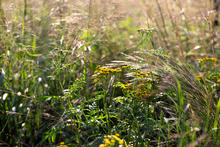
Minnesota’s invasive tansy spread impacted by land use
July 16, 2024
A genomic study by MITPPC researchers sheds light on how common tansy has spread through Minnesota.
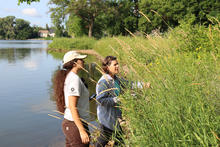
Advanced remote sensing elevates tracking of non-native Phragmites
July 10, 2024
Experts develop a novel workflow using remote sensing and AI to detect with 90% accuracy invasive European common reed grass, often referred to as Phragmites.
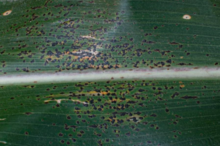
Breakthrough on tar spot pathogen enables field research
June 26, 2024
U of M plant pathologists have figured out how to induce corn tar spot disease in both controlled and field environments, opening the doors for further research.
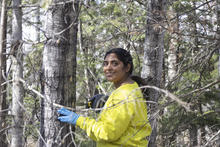
Summer 2024 research activities
June 18, 2024
Summer is an especially busy season for our research teams. Learn about some of the activities they're engaged in this year across the state of Minnesota.

Meet the researcher: Vinni Thekkudan Novi and advanced forest pathogen diagnostics
May 22, 2024
Vinni Thekkudan Novi's innovative testing approach to detect oak wilt offers real-time results visible to the naked eye in the field.
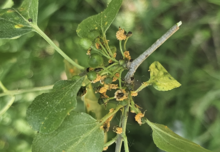
Submit field observations of diseased or dying buckthorn
May 21, 2024
Help MITPPC researchers during the 2024 field season by reporting observations of diseased or dying buckthorn.

Phenology data tool helps optimize timing of invasive plant management
April 16, 2024
MITPPC researchers develop a new online tool to ease management planning for wild parsnip and Japanese knotweed, despite fluctuating weather patterns in Minnesota.

Enhanced computational approaches boost invasive plant predictive power
March 15, 2024
Skilled U of M researchers bring together ecology, evolution, genomics, invasion biology, weed sciences, remote sensing, and artificial intelligence to improve predictive maps for key invasive species in Minnesota, namely common tansy and leafy spurge.
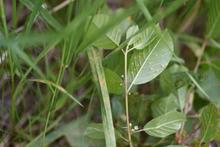
A crown rust fungus could help manage glossy buckthorn and reed canarygrass
March 5, 2024
Though some crown rust fungi are known to cause widespread damage to oat and barley crops, new research suggests a close relative of these major pathogens may be a valuable asset in managing glossy buckthorn and reed canarygrass.
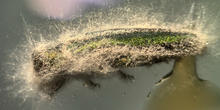
Entomopathogenic fungi may be the key to biocontrol for emerald ash borer
February 16, 2024
MITPPC researchers blaze a trail toward effective biocontrol for emerald ash borer. They’ve identified fungi associated with the beetles that are capable of attacking and killing EAB.